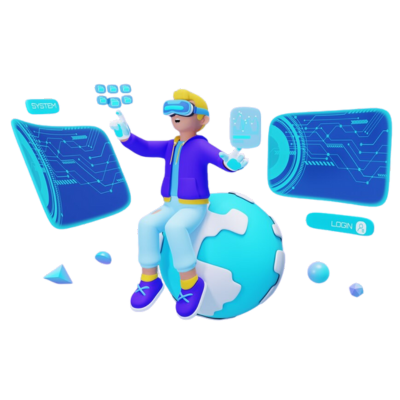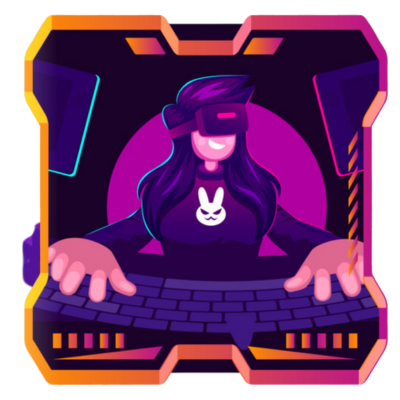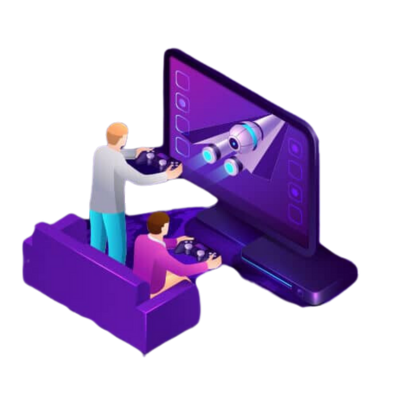Introduction
The gaming industry is experiencing a significant transformation with the advent of Web3 technology. Central to this evolution are smart contracts, which are revolutionising how Web3 games are developed, played, and monetized. As Web3 gaming companies continue to push the boundaries of innovation, smart contracts have become indispensable in ensuring transparency, security, and decentralisation in web 3 games. This blog delves deep into how smart contracts are reshaping the landscape of Web3 games, providing technical insights, and highlighting the impact on the industry.
Web3 Game Development Company
Work with a leading Web3 game development company to create the future of gaming.

Understanding Web3 Games and Smart Contracts
What Are Web3 Games?
Web3 games are a new breed of video games that leverage blockchain technology to create decentralized, player-driven economies. Unlike traditional games, where the developers or publishers have centralized control, Web3 games allow players to own in-game assets, participate in governance, and even earn cryptocurrency through gameplay. The shift towards decentralization in web 3 games is powered by blockchain, smart contracts, and decentralized finance (DeFi) principles, making Web3 games a revolutionary step in the gaming industry.
What Are Smart Contracts?
Smart contracts are self-executing contracts with the terms of the agreement directly written into code. These contracts automatically enforce the rules and penalties of an agreement without the need for intermediaries. In the context of Web3 games, smart contracts are used to manage in-game transactions, asset ownership, rewards distribution, and more. By eliminating the need for centralized control, smart contracts ensure transparency, security, and fairness in web 3 gaming.
Smart Contracts and Web3 Game Design
Enabling Interoperability Between Games
One of the most exciting prospects of Web3 game design is the ability for assets and characters to be interoperable across different games. Smart contracts make this possible by standardizing how assets are represented and transferred on the blockchain. For example, an item earned in one game can be used in another, provided both games support the same standards. This level of interoperability is unheard of in traditional gaming and is a key reason why Web3 gaming companies are investing heavily in smart contract development.
Enabling Interoperability Between Games
One of the most exciting prospects of Web3 game design is the ability for assets and characters to be interoperable across different games. Smart contracts make this possible by standardizing how assets are represented and transferred on the blockchain. For example, an item earned in one game can be used in another, provided both games support the same standards. This level of interoperability is unheard of in traditional gaming and is a key reason why Web3 gaming companies are investing heavily in smart contract development.
Enabling Interoperability Between Games
One of the most exciting prospects of Web3 game design is the ability for assets and characters to be interoperable across different games. Smart contracts make this possible by standardizing how assets are represented and transferred on the blockchain. For example, an item earned in one game can be used in another, provided both games support the same standards. This level of interoperability is unheard of in traditional gaming and is a key reason why Web3 gaming companies are investing heavily in smart contract development.
Incentivizing Player Participation
Web3 games are not just about playing; they are about participating in the game’s ecosystem. Smart contracts are used to incentivize player participation by automatically distributing rewards based on specific actions or achievements within the game. Whether it’s through play-to-earn models, staking, or governance participation, smart contracts ensure that rewards are fairly distributed without the need for manual intervention. This creates a more engaging and rewarding experience for Web3 gamers.
Securing In-Game Transactions
Security is a paramount concern in any online environment, and Web3 games are no exception. Smart contracts provide a secure way to handle in-game transactions, ensuring that all exchanges of assets or currency are executed as intended. Since smart contracts operate on a blockchain, all transactions are recorded on a public ledger, making them tamper-proof and transparent. This level of security is particularly important in Web3 games, where the value of in-game assets can be substantial.
Web3 Game Development Services
Work with a leading Web3 game development company to create the future of gaming.

The Impact of Smart Contracts on Web3 Game Development Companies
Redefining the Role of Game Developers
Web3 game developers are no longer just creators of entertainment; they are architects of decentralized ecosystems. Smart contracts have redefined the role of developers in Web3 gaming, requiring them to possess a deep understanding of blockchain technology, cryptography, and decentralized finance. Web3 game development companies in the USA and India are leading the charge, building sophisticated smart contracts that power some of the top Web3 games in the market today.
Lowering the Barrier to Entry for Indie Developers
One of the most significant impacts of smart contracts on the industry is the lowering of the barrier to entry for indie developers. In traditional gaming, indie developers often struggle to compete with large studios due to the high costs of development and distribution. However, with smart contracts and blockchain technology, indie developers can create and distribute their games on decentralized platforms without relying on publishers or middlemen. This democratization of game development has led to a surge in innovative Web3 games from smaller studios.
Creating New Revenue Streams
Smart contracts have also opened up new revenue streams for Web3 game development companies. Traditional game monetization strategies, such as in-app purchases and subscriptions, are being supplemented with decentralized finance mechanisms like staking, yield farming, and NFT sales. Web3 game developers can use smart contracts to create sophisticated financial models that allow them to generate revenue while providing value to players. This has made Web3 game development a lucrative industry, attracting talent and investment from around the world.
Challenges and Considerations in Implementing Smart Contracts in Web3 Games
Complexity of Smart Contract Development
While smart contracts offer numerous benefits, they also introduce complexity into the game development process. Writing secure and efficient smart contracts requires specialized knowledge in blockchain technology and programming languages like Solidity. Web3 game developers must be meticulous in their coding to avoid vulnerabilities that could be exploited by malicious actors. This complexity can be a barrier for traditional game developers looking to enter the Web3 space.
Scalability Issues
Scalability is another challenge that Web3 game development companies must address when implementing smart contracts. As the popularity of Web3 games grows, so does the demand for fast and efficient transactions on the blockchain. However, many blockchains, including Ethereum, face scalability issues that can lead to high transaction fees and slow processing times. To overcome this, Web3 gaming companies are exploring solutions like layer 2 scaling, sidechains, and alternative blockchains that offer better performance.
Regulatory Uncertainty
The regulatory environment for blockchain and cryptocurrencies is still evolving, and this uncertainty can pose challenges for Web3 game developers. Smart contracts and decentralized finance mechanisms may be subject to regulations in different jurisdictions, which could impact how Web3 games are developed and distributed. Web3 development companies must stay informed about regulatory developments and ensure that their games comply with relevant laws.
Level Up Your Web 3 Game! Get Expert Development Services Now!
Work with a leading Web3 game development company to create the future of gaming.

Future of Web3 Games and Smart Contracts
The Rise of Web 3.0 Games
As Web3 technology continues to mature, we can expect to see the rise of more sophisticated web 3.0 games that fully leverage the power of smart contracts. These games will likely offer even more immersive experiences, with seamless interoperability, decentralized governance, and innovative economic models. Web3 gamers will have unprecedented control over their gaming experiences, from asset ownership to game development decisions.
Integration with Emerging Technologies
The future of Web3 games will also be shaped by the integration of emerging technologies like artificial intelligence (AI), virtual reality (VR), and augmented reality (AR). Smart contracts will play a critical role in enabling these technologies to interact with blockchain-based systems, creating new possibilities for game design and player interaction. For example, AI-driven NPCs (non-playable characters) could interact with players based on smart contract logic, or VR environments could be custom made and owned by players through NFTs.
Expanding the Web3 Games List
As more developers and companies enter the Web3 gaming space, the Web3 games list will continue to grow, offering players a diverse range of gaming experiences. From strategy and role-playing games to sports and simulation games, the variety and quality of Web3 games will increase, attracting a broader audience of players. The best Web3 game platforms will become hubs for innovation, where developers can experiment with new ideas and push the boundaries of what’s possible in gaming.
Conclusion
Smart contracts are revolutionizing Web3 games by enabling decentralized asset ownership, transparent in-game economies, and automated governance. They’re transforming how games are developed, played, and monetized. With innovations from Web3 game development companies across the USA, India, and beyond, the future of Web3 gaming is full of exciting possibilities for players and developers.
However, challenges like smart contract complexity, scalability, and regulatory uncertainty need to be addressed. As the industry evolves, we’ll see advanced Web 3.0 games that integrate emerging technologies and offer unprecedented player control. Staying ahead in this dynamic field means embracing smart contracts and blockchain technology, marking the beginning of a thrilling new era in gaming.



